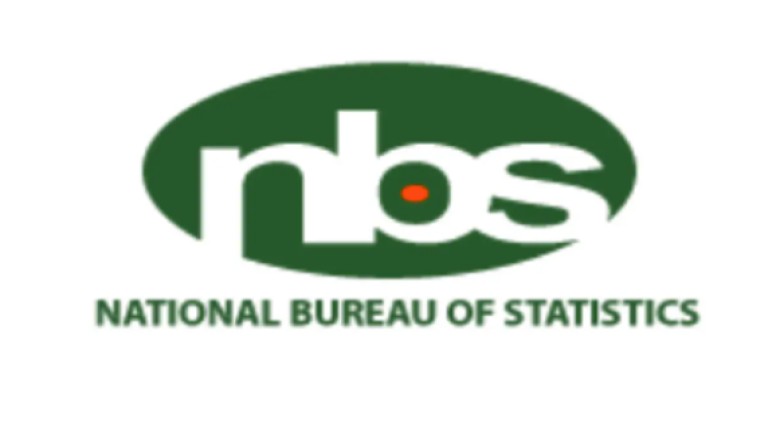AfDB outlines $2.7bn budget and agricultural financing initiatives for Nigeria
Akinwumi Adesina, the President of the African Development Bank (AfDB), announced the approval of $134m for Nigeria to implement an emergency food production plan by the AfDB Board of Directors.
He also revealed ongoing discussions for a $1.7bn economic and budget support loan and the initiation of a $1bn agro-industrial process in 28 states. Adesina shared this information in an interview with journalists in Lagos on Monday. These developments are in response to a severe food shortage, prompting hunger protests in various Nigerian states and recent attacks on grain warehouses in Abuja, Ogun, Niger, and Kaduna states.
The government's fuel subsidy removal and exchange rate unification policy implemented last June have resulted in significant challenges, with inflation nearing 30 percent due to the sharp depreciation of the naira.
The adverse impact on consumer purchasing power has also affected businesses, leading to weak Gross Domestic Growth in the last quarter of the previous year. Despite these challenges, Adesina assured journalists in Lagos that the African Development Bank (AfDB) is committed to supporting Nigeria during this period. He revealed that several agricultural initiatives are expected to yield approximately five million metric tons of wheat, rice, cassava, and maize for the country this year.
He expressed assurance that the development bank would collaborate with the Nigerian government to provide solutions to the challenges facing Africa's largest economy.
He stated, "I'm not accustomed to complaining; I'm accustomed to finding solutions. I did inform the President last year that we would strongly support the Nigerian government in addressing the challenges. As of today, we have sanctioned $134m for Nigeria to execute an emergency food production plan. This is not merely a plan in the works; it is already in progress."
"We have already assisted in cultivating 118,000 hectares of wheat in Nigeria this season. In March, we will facilitate 150,000 hectares of maize production. During the rainy season in May and June, we plan to support Nigeria in cultivating 300,000 hectares of rice, along with 300,000 hectares of maize, 150,000 hectares of cassava, and 50,000 hectares of soybeans. By the end of March, Nigeria is expected to yield an additional one million metric tons of wheat, and by November, an additional four million metric tons of rice, cassava, maize, and soybeans will be produced."
The AfDB leader, however, advised Nigeria to focus on increasing food supply, emphasizing that food inflation is a significant contributor to the nation's overall inflation rate.
Addressing inflation requires addressing some of the underlying structural factors, according to him.
"A significant portion of Nigeria's inflation is attributed to food price inflation. If you examine the Consumer Price Index, perhaps 65 to 75 percent of it is currently the cost of food. Therefore, addressing food price inflation doesn't necessarily involve conventional macroeconomic policies like tightening monetary supply. Instead, it requires focusing on increasing food production because that's the fundamental solution needed. It's crucial to prioritize enhancing food production in the country," he stressed.
Regarding how the country can rapidly enhance food production, Adesina suggested, "The government should reinstate the electronic wallet system policy. During my tenure as minister, we implemented a program that utilized electronic vouchers to deliver seeds and fertilizers directly to farmers via their mobile phones. We successfully reached 15 million farmers in four years, leading to a significant increase in food production. I strongly advise that this approach needs to be reinstated promptly because access to high-quality seeds, fertilizers, and other farm inputs is crucial for success."
Adesina also emphasized the importance of Nigeria securing low-interest concessionary financing to address its economic challenges. He highlighted the need to address issues related to the exchange rate, especially for an import-dependent nation. He mentioned that the AfDB is planning a $1.7 billion economic and budget support loan for the country.
He stated, "Considering the tight fiscal space and forex limitations in Nigeria, there is a pressing need for substantial support. At the African Development Bank, we are actively working to provide more concessional financing to the Nigerian economy. This year, we anticipate obtaining approval from our board of directors for $1.67 billion in financing across various sectors, which may include a potential policy-based operation for budget support. Discussions with the Minister of Finance are ongoing, and this involves a $1 billion budget support operation in two tranches, subject to board approval."
Adesina also highlighted additional agricultural projects in the country, mentioning the AfDB's plan to launch a program for a $1 billion special agro-industrial initiative in 28 states this year. He emphasized that these structural interventions would enhance the productivity, efficiency, and competitiveness of agriculture.
"So these are the initiatives we are undertaking in Nigeria. Additionally, we have initiated a program known as Special Agro-Industrial Processing Zones. These are novel economic zones we are assisting Nigeria in establishing. We have allocated $520 million for this initiative, collaborating with the African Development Bank, the Islamic Development Bank, and the International Fund for Agricultural Development. Currently, the program is in progress across eight states, and we anticipate that construction will commence by June of this year," he appended.
























Leave A Comment